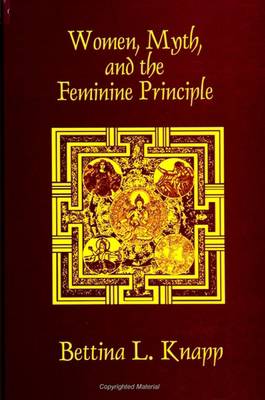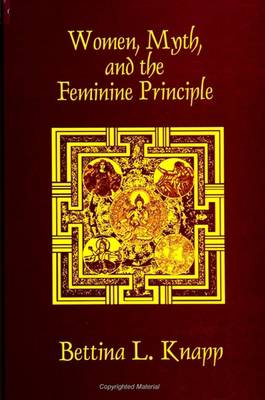
- Retrait gratuit dans votre magasin Club
- 7.000.000 titres dans notre catalogue
- Payer en toute sécurité
- Toujours un magasin près de chez vous
- Retrait gratuit dans votre magasin Club
- 7.000.0000 titres dans notre catalogue
- Payer en toute sécurité
- Toujours un magasin près de chez vous
Description
Focuses on the role played by the feminine principle in specific religious texts, epic poems, theater pieces, and tales narrating sacred events in which deities and supernatural or extraordinary beings move through their difficult celestial and earthly trajectories.
Women, Myth, and the Feminine Principle focuses on the role played by women in specific religious texts, epic poems, theater pieces, and tales narrating sacred events in which Deities and supernatural or extraordinary beings move through their difficult celestial and earthly trajectories.
This is a companion volume to Bettina L. Knapp's Women in Myth and it includes chapters dedicated to the study of two works that have never been broached before, the Tibetan myth Gesar of Ling and the Guatemalan sacred text, the Popul Vuh.
The book begins by probing the "Divine Feminine" in Tibet's Gesar of Ling, one of the most fascinating myths of all time. Especially intriguing is the hero's seemingly continuous dependency on the feminine principle for guidance. The heroine in Kalidasa's Sanskrit drama, Sakuntala focuses on the obstacles set in Sakuntala's earthly trajectory, and how these were instrumental in her evolution from the stage of passive, unconscious, and withdrawn archetypal Maiden to that of the conscious, decisive, strong spiritual Mother. To explore the highly complex personalities of Kriemhild and Brunhild in the High German Nibe-lungenlied is to enter the realm of sun and shadow, the lightened regions of consciousness and the deep interiors of primal darkness. Quiche Mayas's Popul Vuh introduces a primordial couple as active participants in the creation of humankind while Racine's Phaedra projects the dramatist's own gnawing religious conflicts onto his mythical heroine: questions of guilt, remorse, anguish, and fatality/predestination. Yeats's Irish/Celtic feminist and heroine, Deirdre, underscores her inner strength, fortitude, and courage in the face of death while I. B. Singer's "Yentl the Yeshivah Boy" depicts the struggle confronting a young girl from an orthodox Polish Jewish family as she attempts to break out of an ultrapatriarchal society.
Spécifications
Parties prenantes
- Auteur(s) :
- Editeur:
Contenu
- Nombre de pages :
- 277
- Langue:
- Anglais
Caractéristiques
- EAN:
- 9780791435281
- Date de parution :
- 30-10-97
- Format:
- Livre broché
- Format numérique:
- Trade paperback (VS)
- Dimensions :
- 150 mm x 228 mm
- Poids :
- 430 g

Les avis
Nous publions uniquement les avis qui respectent les conditions requises. Consultez nos conditions pour les avis.






